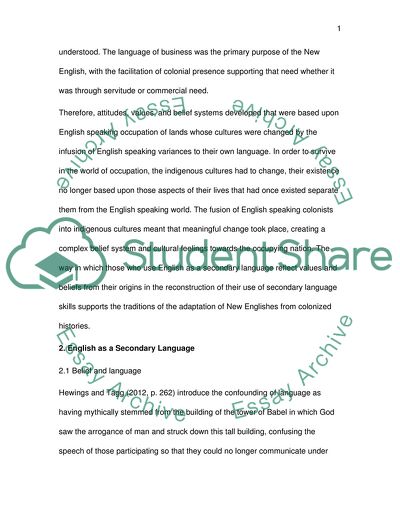Cite this document
(“Values And Attitudes Towards English As New Englishes Emerge Essay”, n.d.)
Values And Attitudes Towards English As New Englishes Emerge Essay. Retrieved from https://studentshare.org/english/1603860-values-and-attitudes-towards-english-as-new-englishes-emerge
Values And Attitudes Towards English As New Englishes Emerge Essay. Retrieved from https://studentshare.org/english/1603860-values-and-attitudes-towards-english-as-new-englishes-emerge
(Values And Attitudes Towards English As New Englishes Emerge Essay)
Values And Attitudes Towards English As New Englishes Emerge Essay. https://studentshare.org/english/1603860-values-and-attitudes-towards-english-as-new-englishes-emerge.
Values And Attitudes Towards English As New Englishes Emerge Essay. https://studentshare.org/english/1603860-values-and-attitudes-towards-english-as-new-englishes-emerge.
“Values And Attitudes Towards English As New Englishes Emerge Essay”, n.d. https://studentshare.org/english/1603860-values-and-attitudes-towards-english-as-new-englishes-emerge.


